Local Advocates Argue Dredging for Ferry Will Stir Up Coney Island Creek Pollutants
An environmentalist accused a city agency of underplaying the expected impact of a ferry line planned for Coney Island during a Monday meeting about the project.

Photo by Charles Denson
An environmentalist accused a city agency of underplaying the expected impact of a ferry line planned for Coney Island during a Monday meeting about the project.
In a permit application for the ferry’s dock, the government reps claimed that the boat dock was “consistent” with the surrounding landscape and won’t “increase traffic” to the area. Coney Island environmentalist and historian Charles Denson disputed those claims.
“Will the proposed action result in an increase in traffic above current levels? You answered no!” said Denson, who contested both claims at the Dec. 14 public meeting. “That is false.”
The quasi-governmental Economic Development Corporation, which runs the city’s ferry system, said in the state’s requisite permit application that the landing pier would fit seamlessly into Kaiser Park, the secluded greenspace where the city is planning to construct the terminal.
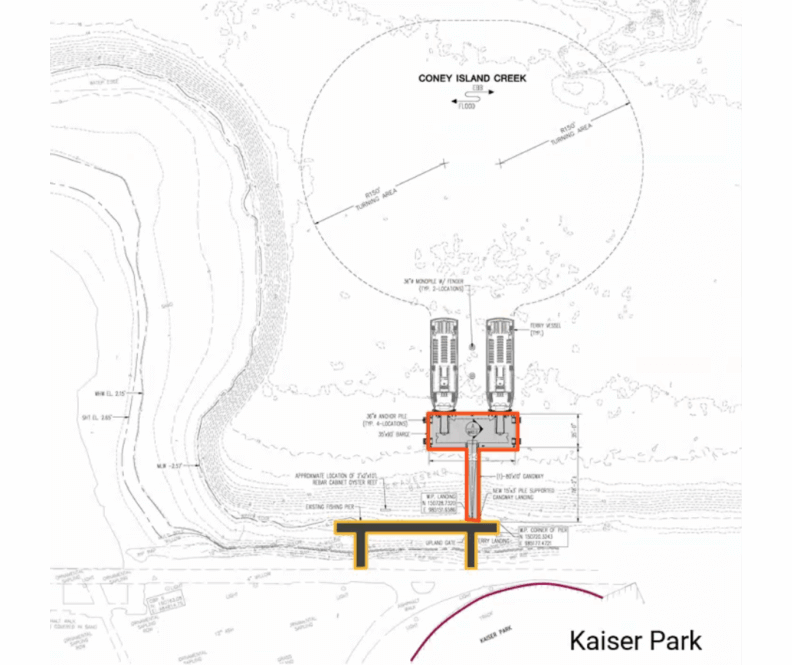
The new ferry line, which is slated to be up and running by the end of 2021, will make stops at Kaiser Park, Bay Ridge, and lower Manhattan — cutting the arduous trip from Coney Island to Manhattan to a mere 35 minutes.
Many residents say they’re in favor of the ferry, but environmentalists charge that the terminal’s construction will stir up dormant pollutants in Coney Island Creek, which is currently under consideration for Superfund status.
Dredging during construction could potentially put their health of residents who swim, fish, or hold religious ceremonies along the waterway at risk, environmentalists add.
To try to assuage these fears, representatives from EDC spoke about their plans to mitigate contamination during the Dec. 14 meeting.
“What we’re doing is being done safely,” said James Wong, the executive director of EDC’s ferry division. “Just making sure we’re keeping to promises and making sure theres minimal destruction to aquatic life.”
Dredging will begin in January to ensure the creek is deep enough to accommodate the ferries, Wong and other representatives said. Workers will dredge up to two feet of silt at only one section of waterway by the mouth of the creek, where representatives claim there are no detectable toxins, according to EDC’s presentation.
To refrain from disturbing aquatic life, dredging will stop during the flounder and horseshoe crab spawning seasons, and workers will use a “turbidity curtain” and “environmental bucket” to ensure that the upended soil doesn’t spread to rest of the creek.
But environmentalists claim that these so-called safeguards are far from foolproof.
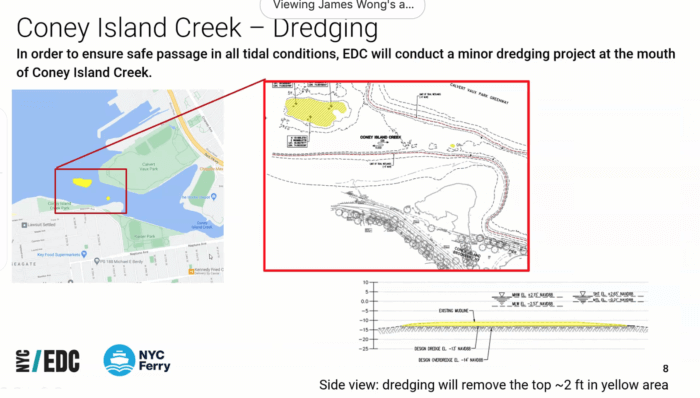
“Curtains flare at the bottom; they don’t contain the toxins. Environmental buckets leak,” charged Ida Sanoff at the meeting, citing a 2015 video of contractors lifting up an environmental bucket full of contaminated sediment, which is seen leaking back into Gravesend Bay.
During the meeting, Denson blasted EDC for allegedly claiming that the ferry terminal’s proposed location is not near a former “waste management” site — arguing that Calvert Vaux Park, which lives across the creek, was used as an illegal dumping ground for decades, and that a Sanitation Department incinerator once operated across from the park.
A statement Denson submitted to the state’s Department of Environmental Conservation highlighted these accusations.
“NYCEDC’s permit application is filled with falsehoods designed to obfuscate the true impact that this project will have on the State’s Tidal Wetlands habitat and the water quality of Kaiser Park and adjacent Coney Island Creek Park,” he wrote in the statement.
EDC representative Jennifer Cass responded that the park was not formally considered a waste management site, but did not further address Denson’s accusations.
Though EDC has long claimed that the ferries are too small to dock safely on the open ocean, community members demanded that the agency find a way to build the terminal on Coney Island’s beach, which is a much more common tourist attraction than the creek.
“It may cost some more money, that’s true,” said Jeff Sanoff, who chairs the community board’s transportation committee. “But I can’t believe the engineers at EDC can’t think of a solution when we put a man on the moon.”
Locals also argued that the agency is pushing a quick timeline for construction and minimizing community input in order to finish the project by the end of Mayor Bill de Blasio’s tenure.
“Stop trying to sell us a cheap and dirty plan,” said community activist Craig Hammerman.
Editor’s note: A version of this story originally ran in Brooklyn Paper. Click here to see the original story.
Related Stories
- EPA Begins Long-Awaited Cleaning of Toxic Gowanus Canal
- Coney Island Creek May Become Brooklyn’s Next Official Superfund Site
- Greenpoint Ferry Service Back Up After Weekend Snafu Over Dock Rights
Sign up for amNY’s COVID-19 newsletter to stay up to date on the latest coronavirus news throughout New York City. Email tips@brownstoner.com with further comments, questions or tips. Follow Brownstoner on Twitter and Instagram, and like us on Facebook.

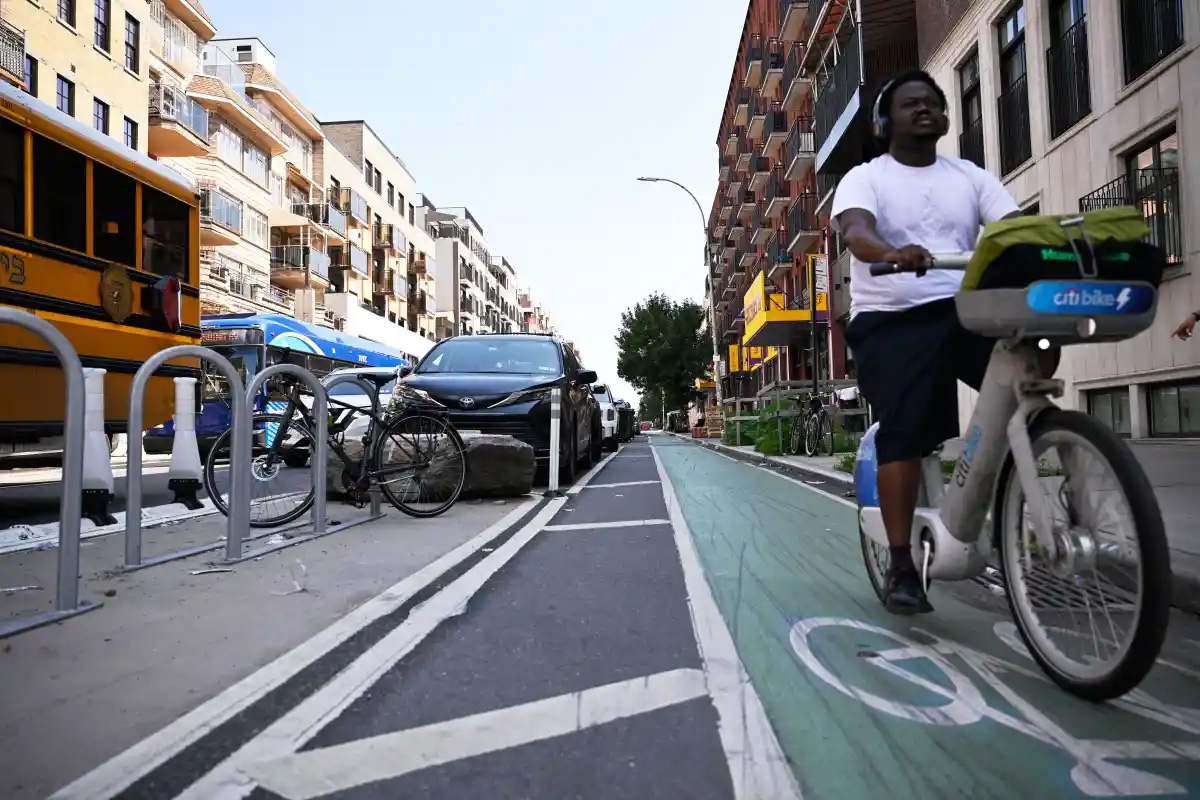

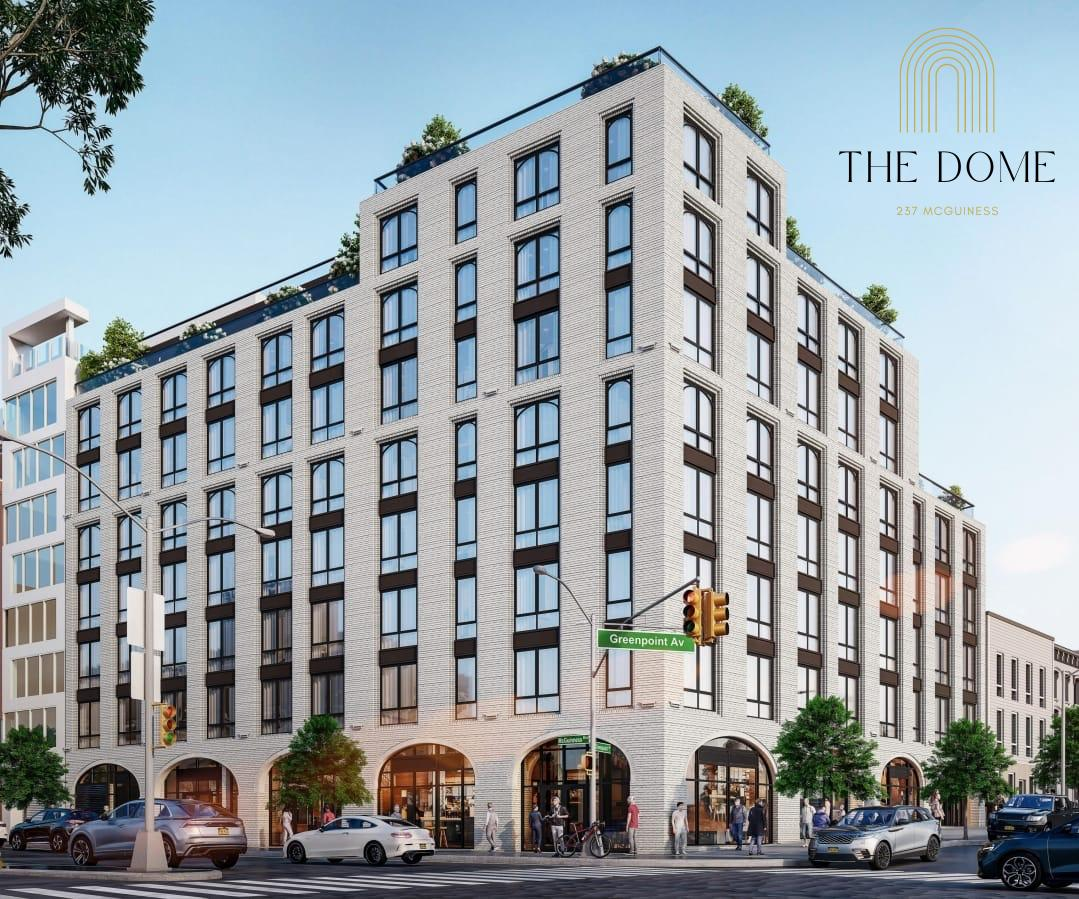
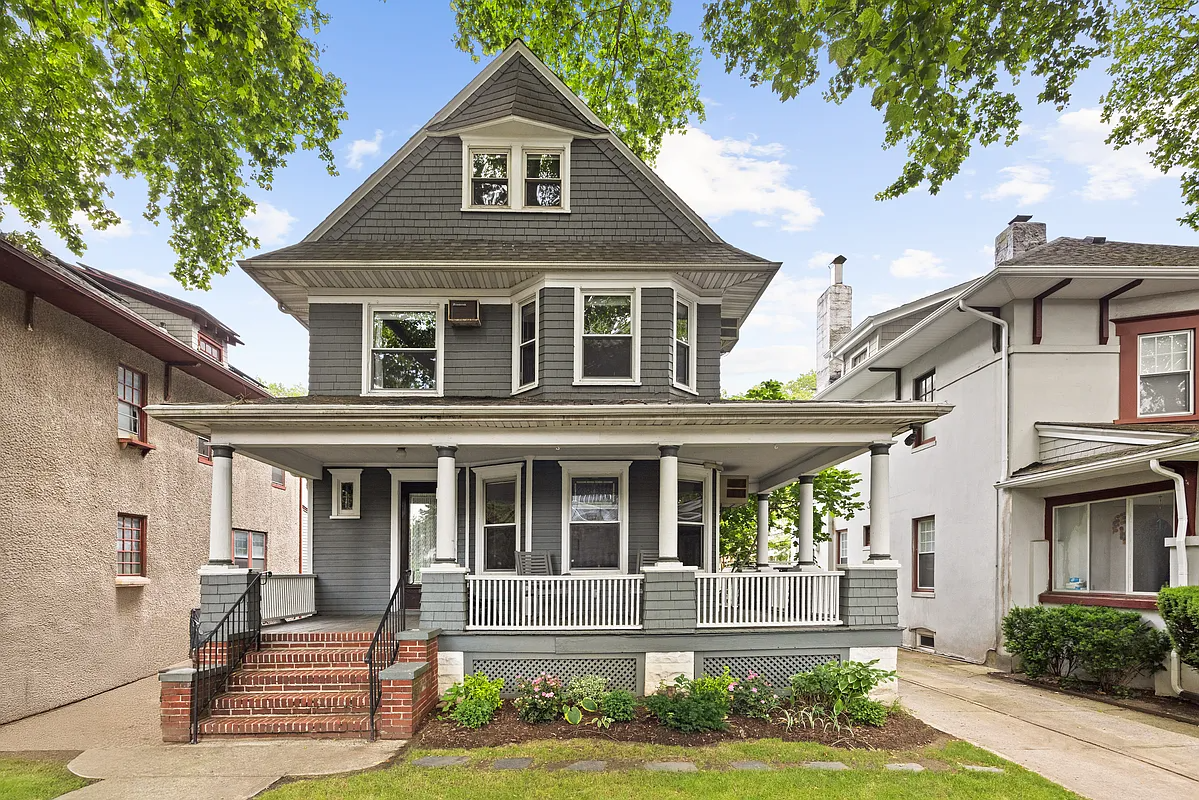
What's Your Take? Leave a Comment